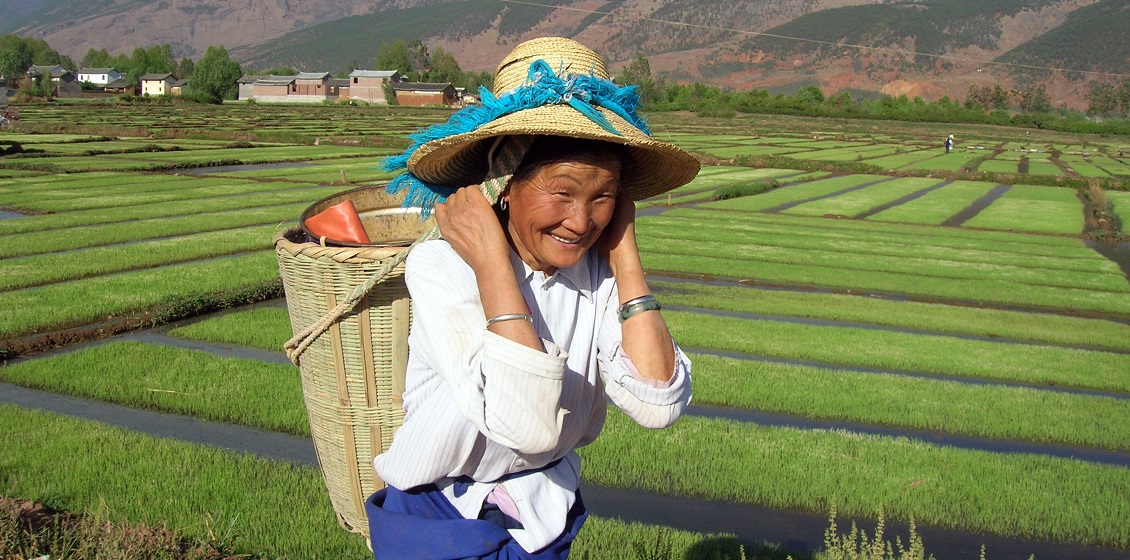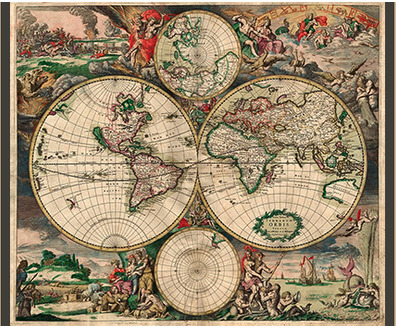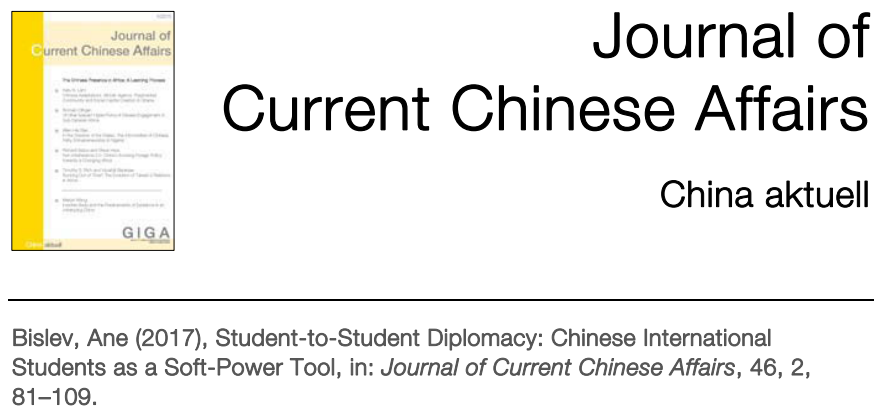In today’s world, it is extremely important for academics to keep having contacts in China, but it has to happen in a way in which you are not ruining your best sources. However, this is not easy, according to an experienced Danish researcher in the field.
In many parts of the world, the traditional division of labor between the South and North partners within research projects has been undergoing great changes in recent years.
Changes are happening in China too, not least because of the pandemic, which has meant that Western researchers have been unable to enter China for almost three years. This has left Chinese partners with the sole responsibility for outgoing fieldwork and data gathering.
At the same time, deteriorating Sino-Western relations have led to a growing wariness towards Western research institutions, and a consequent need to protect Chinese research partners from potential negative consequences of collaborative projects, explains Ane Bislev, associate professor in Chinese Area Studies at Aalborg University.
”We have to be cautious not to pressure them into going out and asking questions about issues that might get them into trouble”. ”Of course, we talk to them and have to rely on their own intuition regarding their own position, what they can do, and what they cannot do. But also, we have to set a limit for ourselves. It’s not easy to collaborate with China. It’s extremely important to keep having contacts, but it has to happen in a way in which you are not ruining your best sources”.
This is of course not fundamentally different from working as a researcher in other autocratic states around the globe – but modern China is an extreme case.
”On the one hand, there are so many excellent Chinese researchers in the social sciences. But on the other hand, there are certain limits as to what you can publish in China, as well as a strong tradition for policy-oriented research which defines how you can address social problems. If the Chinese researchers have a stable base in the West, it is of course different, but as soon as a Chinese university is involved, there are much narrower limits for what they can say and write. Maneuvering in this kind of situation has become a natural part of collaborating with China. Of course, it’s possible, and it is very important to continue doing it, but you have to collaborate in a different way”.
According to Ane Bislev, collaboration has become increasingly difficult during the pandemic, where Western researchers have had to rely exclusively on their Chinese partners for fieldwork data.
Back in the 1990’s, when Ane Bislev came to China to study the language, the atmosphere was much more free, at least for a young, Western student. Originally, she planned to study development studies along with the Chinese language, but instead she chose anthropology as her minor. When she came to the Southwestern province of Yunnan in 2001 and 2002 in order to do fieldwork for her PhD about microcredits in China among peasants in the countryside, she experienced ”basically no restrictions”.
”But it was a politically harmless issue to study. I have always been interested in what creates development in The Global South, and microcredits were, at that time, generally considered a useful development tool by everybody”.
During her stay in Yunnan, Ane Bislev collaborated with several young researchers from Yunnan Academy of Social Sciences. They helped her in establishing contacts and interpreting from local dialects.
”There was a clear division of labor, yes. But still, we had a lot of discussions when walking to the fieldwork site. They simply couldn’t understand that I kept asking the same naive questions again and again even though I had received an explanation the day before”.
”So it often developed into discussions about how you do good research. The Chinese counterparts had grown up in a tradition for empirical research where you are focused on gathering concrete information to be used as documentation. How many members in a typical microcredit group? Do you normally manage to pay the money back? But as an anthropologist, I was more interested in who said it? How do they talk about it? Why do they participate when they are actually not doing the activities they receive the money for? And finally, in the end, do the women involved actually have the money at their disposal? Even though I knew the concrete answers to many of the questions, it was interesting to hear how they would answer it”.
“Back then, some of the Chinese research assistants understood my approach while others just found me a bit slow on the uptake”.
Since then, Ane Bislev has engaged in research into more and more politically complicated issues, i.e. other kinds of credits, nationalism, international student exchange, and tourism seen as a meeting between different cultures, which complicates fieldwork access.
”The Olympics in 2008 was to me a turning point. Around that time, a political vigilance towards almost everything foreign began to show its face. Since then, it was suddenly very complicated to send, for instance, a package of books from China to Denmark, and I don’t expect those restrictions to be removed again”.
At the moment, Ane Bislev is involved in a research project about the financial aspects of China’s much-debated ”social credit system” in cooperation with colleagues from Aalborg University and the IT University in Copenhagen. The project is financed by public Danish research funds, and as such, they need to include Chinese research partners in the project.
A couple of young, Western-educated Chinese postdoctoral students – Chinese citizens based in China – are also involved, and even though the Danish researchers currently cannot enter China, the project is going ahead and the participants inside and outside of China are having online coordination meetings every two weeks. The two postdocs are of course publishing their own projects, but in this case, the two sides will also publish together.
Ane Bislev underlines that even though they may have different approaches to what constitutes good research, she has always learned a lot from her Chinese research partners and research assistants. ”I wouldn’t have come very far without them. They know the society, they know the system, they have a much better understanding of their own context, and they are very often able to explain to me what is happening behind the scenes. The research would have ended up much weaker without their collaboration”.
”There has not always been equal partnerships because our conditions are very different when it comes to academic freedom and research agendas. Of course, I have had many open discussions with Chinese colleagues who want very much to discuss sensitive issues with me, but I have to be cautious when I quote what they told me. What is being written and published is controlled more and more, and when they teach, they have to be increasingly careful, obviously avoiding more sensitive political issues like the situation in Xinjiang entirely”.
“When I started doing fieldwork-based research in China, the projects were normally considered my projects, and the research assistants were helping me. But they were not just interpreters either. They were very active contributors – and they have been indispensable”.
“In our current project it is very different, since my Danish colleagues and I are, in effect, unable to enter China, and the fieldwork the postdocs are doing becomes the absolute heart of the project”.
As an example of the current limits on access to China, Ane Bislev mentions an upcoming article which will be published as part of the ”social credit” project. She wrote it together with a Danish and a Chinese colleague, about a new app that is used by many families to hire domestic help like nannies, servants, and drivers.
”It’s based entirely on information that we have been able to gather on the internet. We totally missed going there and talking to the nannies themselves, as well as the families who hired them and the companies that developed the app. We have never tried to stand there, looking people over the shoulder in order to watch how they are using the app”.
”At the moment, we are understanding each other less and less because there has been so little exchange during the pandemic. Zoom meetings are simply not enough. We have continued having Chinese students in Aalborg as part of our double-degree program, but the Danish students haven’t been able to go to China. One problem is of course the teaching they don’t get, but another problem is that they don’t experience Chinese everyday life. They haven’t had to take the subway in Beijing”.
”At the time when we were able to send our students to China, typically for a year, some of them came home with a lot of fascination with China, and others came home just as critical as they left. But all of them had had their perspective changed a little bit – like the Chinese students here who are having their perspective on the West changed a little bit”, concludes Ane Bislev.












